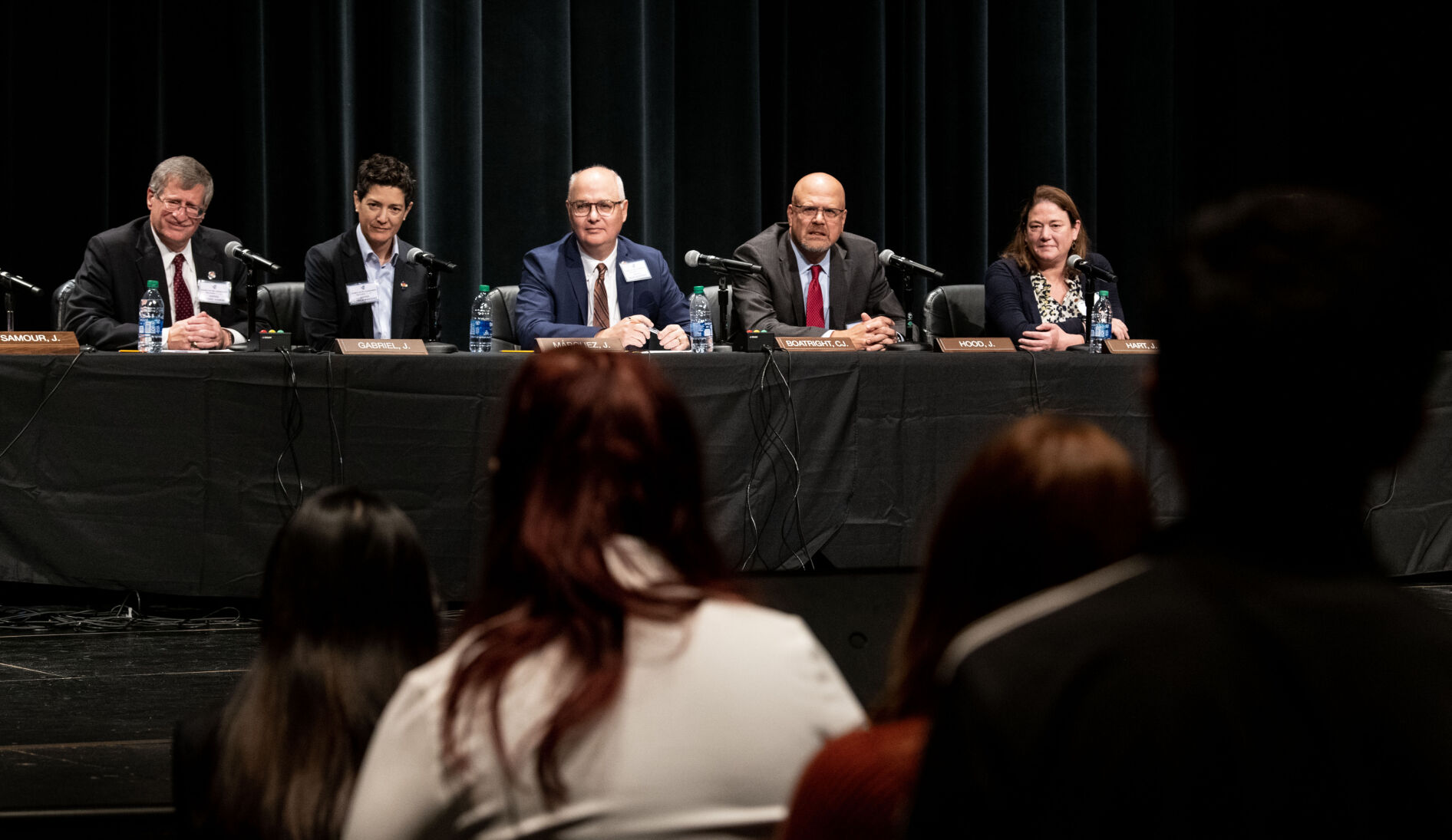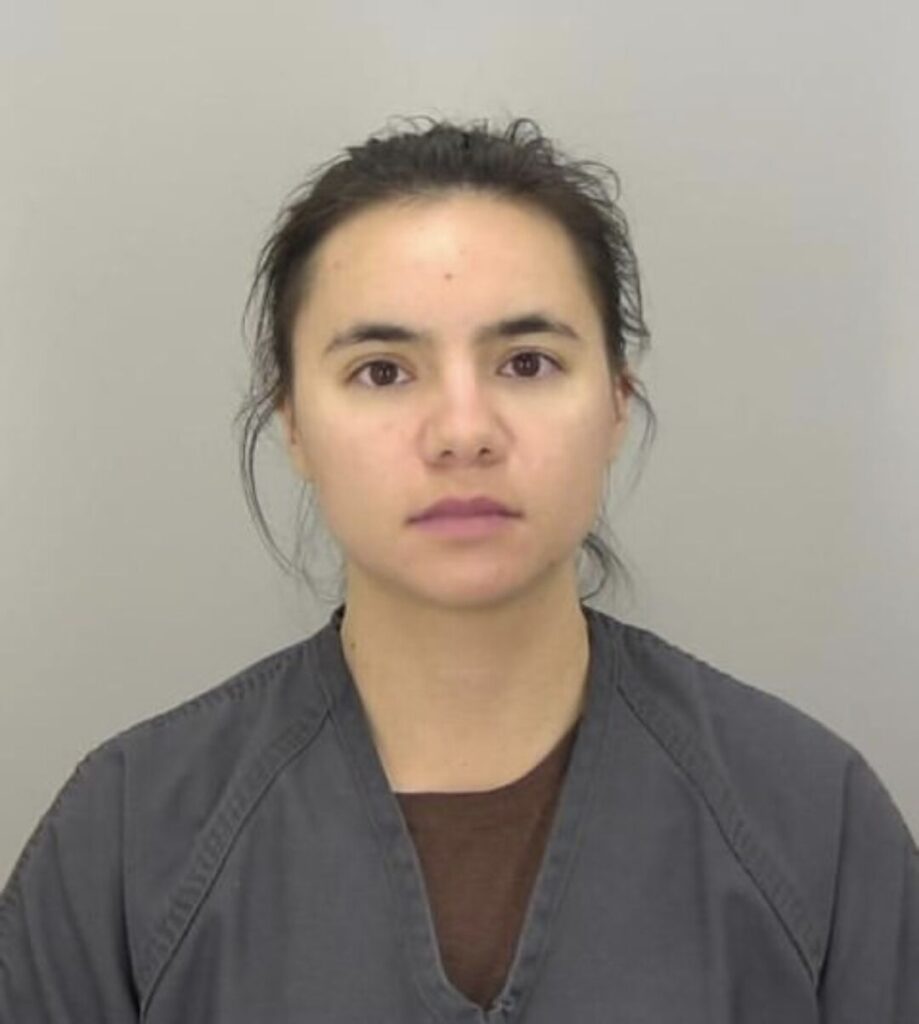State Supreme Court takes up cases on fishing rights, defamation, late-filed insurance claims

Colorado’s Supreme Court has agreed to hear three cases on appeal, implicating private ownership of riverbeds throughout the state, liability for statements that attorneys make publicly about their cases, and the ability of homeowners to pursue insurance claims filed outside of their policy’s deadline.
It takes the consent of three of the court’s seven members to review an appeal.
The Supreme Court narrowly turned down a fourth case on Monday involving a century-old neighborhood layout in Arapahoe County and its implications for constructing a private driveway. Only two justices voted to hear that appeal.
The case of the trespassing fisherman
Roger Hill’s favorite fishing spot is a stretch of riverbed in Fremont County. There, the Arkansas River passes through the property of Mark Warsewa and Linda Joseph. After warning Hill against trespassing, Joseph allegedly threw rocks at him and Warsewa shot a gun near Hill while he attempted to fish.
Hill filed a lawsuit asking for a judge to declare the riverbed itself belonged to the state of Colorado and was “held in trust for the people.” He alleged the waterway was navigable at the time Colorado became a state in 1876 and consequently, under longstanding legal principle, the riverbed was not private property.
The lawsuit bounced between federal and state courts, but a Fremont County judge ultimately dismissed his case in September 2020. District Court Judge Lynette M. Wenner decided Hill lacked standing because the right he was seeking to vindicate – fishing from the riverbed in one preferred spot – did not pertain to him specifically, but affected all of the public.
In January of this year, a three-judge panel of the Court of Appeals agreed in part with that conclusion. Hill could not, on behalf of the state, attempt to declare Colorado the owner of the riverbed. However, Hill was seeking to vindicate a right specific to him: being able to fish without further harassment or threats against his life.
“We certainly cannot, at this early stage, know whether Hill will be able to establish that the river segment was navigable at statehood. But we cannot say it is not plausible,” wrote Judge Ted C. Tow III in reinstating part of the lawsuit.
Warsewa and Joseph, Hill and the state each filed petitions with the Supreme Court. Interest groups also weighed in to criticize the Court of Appeals’ decision.
“Neither the Colorado Constitution nor any other Colorado law affords Hill the right to access riverbeds crossing private property,” wrote the Colorado Water Congress, a nonprofit representing water users.
“Hill’s assertion of State ownership of riverbeds could result in a destabilizing and radical transfer of property rights from private, non-profit, and governmental landowners to the State of Colorado,” wrote the Colorado Farm Bureau and landowners along the Taylor River, “suddenly making them regarded as trespassers on state land.”
The Colorado Attorney General’s Office urged the Supreme Court to take the case and side with Wenner’s original interpretation. Hill was fundamentally suing based on a general grievance applicable to every member of the public, the state argued, with the appellate panel believing he had standing simply because he trespassed.
The appeals court’s logic “would encourage other people to trespass to gain standing, putting themselves at risk of harm and encouraging dangerous behavior,” wrote Solicitor General Eric Olson.
The justices will decide whether Hill has standing to seek a declaration about the riverbed’s ownership. The case is The State of Colorado et al. v. Hill.
Defamation by attorney
In May 2018, civil rights attorney Mari Newman of the prominent firm Killmer, Lane & Newman held a press conference near downtown Denver outside an Ella Bliss Beauty Bar location. The firm had just filed a class action lawsuit against Ella Bliss on behalf of nail technicians, alleging the company illegally withheld wages and tips.
During the press conference and in a subsequent press release, Newman made various statements about Ella Bliss being “too cheap to pay its workers,” that it “only pay(s) for the hours they feel like paying” and it forces technicians to “perform janitorial work without pay,” among other allegations.
One year later, Ella Bliss filed a defamation lawsuit against Newman and her firm. A Denver District Court judge dismissed the lawsuit, finding Newman’s statements were protected under the First Amendment as opinions or else covered under the legal doctrine protecting petitioning-related activity.
But last year, the Court of Appeals disagreed. It found some of Newman’s statements were not protected and could be pursued as defamatory.
The appellate panel also addressed something the trial judge did not: the notion of “litigation privilege.” As the court summarized, litigation privilege shields a lawyer against defamation for their communications “during the course of and as a part of” a judicial proceeding, so long as the challenged comments are related to the proceeding.
No Colorado case, noted then-Chief Judge Steve Bernard, had considered whether the litigation privilege applied to the types of comments Newman had made. Although Newman justified her remarks by arguing she was trying to promote the original lawsuit and reach nail technicians affected by the class action, the lawsuit itself admitted it would be “easily ascertainable” to count the technicians from Ella Bliss’ business records.
“(W)e conclude that the privilege does not apply in this case because the attorneys had a ‘feasible way’ of figuring out who in their audience had an interest in the case,” wrote Bernard. “But they nevertheless broadly published the allegedly defamatory communications to those having no interest in the case.”
Newman and her firm appealed to the Supreme Court, arguing the appellate panel’s decision would have a negative effect on the ability of plaintiffs’ lawyers to reach potential class members early on. Permitting such defamation lawsuits to proceed could also delay or distract from the underlying case.
“At worst, defense counsel could try to induce a class-wide settlement by offering class counsel the prospect of escaping personal liability,” wrote attorneys for Newman and her firm.
The Supreme Court has agreed to review the appeals court’s interpretation of the litigation privilege. The case is Killmer, Lane & Newman LLP et al. v. BKP, Inc. et al.
Late-filed insurance claims
Since 1909, the Colorado Supreme Court instructed that insurance companies were not generally required to provide otherwise-covered benefits if the insured person made a claim outside of the deadline in their policy. But in 2001, that “traditional approach” gave way to a new legal doctrine: the “notice-prejudice rule.”
In an underinsured motorist case, the state Supreme Court decided to apply the notice-prejudice rule, permitting late-filed claims to move forward if an insurance company cannot show the policyholder’s delay was prejudicial. Prejudice to the insurance company, under the circumstances, means the filing delay compromised its ability to investigate or defend against the claim.
In October 2018, Karyn Gregory filed a claim with her insurance company, Safeco Insurance, after a contractor informed her of hail damage to the roof of her Denver home. Safeco discovered the hail damage occurred in May 2017 and because Gregory’s policy required claims to be reported within 365 days, the company refused to cover it.
Gregory filed suit in Denver District Court for breach of contract, but a trial judge dismissed the case upon finding the notice-prejudice rule did not apply. In April 2022, a three-judge panel of the Court of Appeals agreed, noting the Supreme Court has only applied the rule in two circumstances: underinsured motorists and general liability coverage. In Gregory’s case, the traditional approach still applied.
Extending the notice-prejudice rule to homeowners’ policies may make sense, acknowledged Judge W. Eric Kuhn. In the panel’s view, “this case may present an opportunity for our supreme court to provide clarity on this question.”
Seizing on the appellate panel’s invitation for the Supreme Court to weigh in, Gregory filed a petition for the justices’ consideration. She noted the justifications behind the notice-prejudice rule – compensating victims for injuries and preventing insurers from gaining a windfall based on a technicality – applied in her case.
Despite paying premiums to Safeco on her homeowner policy, “strictly enforcing the one-year provision would mean that Petitioner’s roof is no longer insured,” wrote her attorney.
The Supreme Court will now determine whether to apply the notice-prejudice rule to homeowner insurance policies. The case is Gregory v. Safeco Insurance Company of America.
Mountain or molehill?
The court also narrowly turned down a dispute between neighbors out of Arapahoe County.
The Clark Colony subdivision in Cherry Hills Village is unlike other neighborhoods in metro Denver, being generally rural with streets that dead end instead of forming a complete grid. The subdivision originated in 1906 with 16 square lots and streets that were dedicated “to the occupants.”
In the underlying lawsuit, a property owner living along S. Fairfax St. sought to extend the existing portion of the street – which dead ends at his neighbor’s property to the south – along its original grid line to gain access to his property along S. Fairfax.
A trial judge found the original street alignment, which the city had since vacated, was for the benefit of both property owners along S. Fairfax. Therefore, the owner seeking the private driveway had a right to construct it. After the Court of Appeals agreed, several residents of the area supported the objecting property owner in appealing to the Supreme Court.
Allowing people to resurrect through streets that were long abandoned “destroys much of what makes Cherry Hills Village the unique, family oriented, and safe living environment that currently exists,” the neighbors warned.
In response, lawyers for the owner seeking the driveway said the petition “makes a mountain out of a molehill.”
Justices Carlos A. Samour Jr. and Maria E. Berkenkotter would have accepted the case to decide whether the original 1906 plat for the subdivision created private rights to the street after all.
The case is Nature’s Gallery Estate, LLC v. 4700 South Forest Street, LLC.














